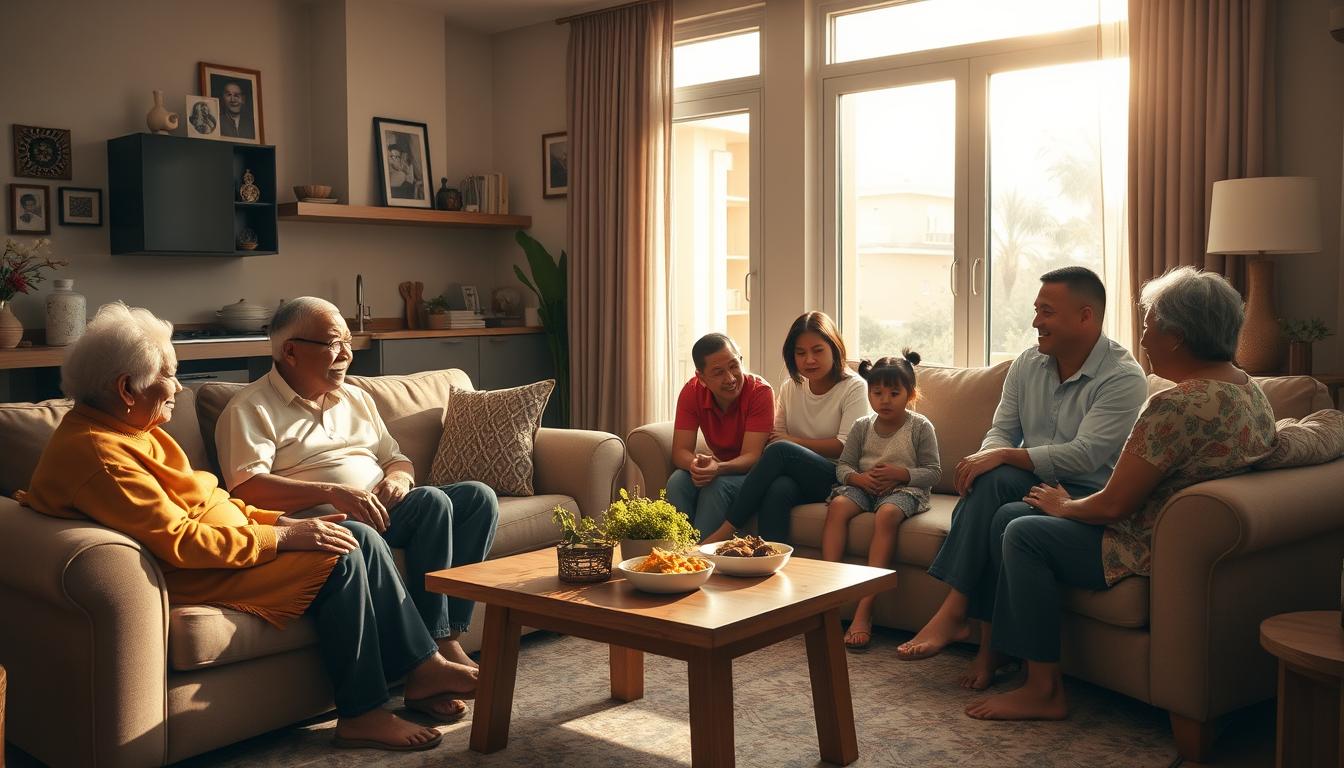
Every culture is fundamentally characterized by its family structures. They influence the manner in which individuals interact, rear children, exist, and provide support to one another during life’s obstacles. Although Western countries generally adhere to the nuclear family model, which involves parents and children living independently, numerous ASEAN (Association of Southeast Asian Nations) societies have adopted the extended family system, which involves multiple generations residing under the same roof. These distinctions reveal a great deal about the daily rhythms, expectations, and values of family life in various regions of the globe.
What is the definition of a nuclear family?
The nuclear family paradigm is the norm in Western countries such as the United States, Canada, the United Kingdom, and a significant portion of Europe. The family is composed of two parents and their offspring, who reside in a singular household that is not connected to their grandparents, aunts, uncles, or siblings.
Values such as self-reliance, personal privacy, and independence are promoted by this structure. Young adults are encouraged to establish their own households, attend college, and move out as soon as they are financially competent. Independent of the extended family, decisions regarding careers, relationships, and life paths are frequently made.
This model provides flexibility and freedom, but it also presents obstacles, particularly in the areas of emotional support, eldercare, and daycare, which are frequently managed without the direct daily involvement of relatives.
What is the definition of an extended family?
Indonesia, the Philippines, Vietnam, Myanmar, and Thailand are among the ASEAN countries in which the extended family serves as the primary unit. In addition to parents and children, a typical household may also include grandparents, cousins, aunts, and uncles.
This system is a reflection of the profoundly ingrained values of filial piety (respect for elders), collectivism, and shared responsibility. Children frequently develop a diverse network of relatives, learning from a variety of generations and receiving guidance from individuals other than their parents. Grandparents frequently assist with childcare, while adult children handle the care of their elderly parents in their homes.
Extended families are the primary support network in rural and urban areas, providing emotional, financial, and social support.
Family Roles and Daily Life
In nuclear families, daily routines are typically organized according to the schedules of the parents and their offspring. The solitary decision-makers are the parents, and responsibilities are frequently shared between the two adults. From an early age, children are encouraged to develop independence.
Daily life is more communal in extended families. Grandparents may prepare meals, elder siblings supervise their younger siblings, and multiple individuals contribute to household income and household responsibilities. Elders frequently exercise a significant influence in the collective decision-making process.
This type of arrangement can alleviate the stress experienced by any individual family member and foster a sense of security and connectedness. Nevertheless, it can also restrict individual autonomy and induce generational disputes when values diverge.
Emotional and Financial Assistance
Shared financial support is one of the most significant advantages of extended families. In ASEAN countries, it is not uncommon for younger family members who are employed in urban areas to send money home to assist their parents and relatives. In turn, elders contribute by providing assistance with household tasks or caring for descendants.
Financial independence is prioritized in Western societies. It is customary for parents to rear their children until they reach adulthood, after which the two generations typically maintain distinct living and financial arrangements. Although this system encourages autonomy, it can also result in individuals feeling isolated or encumbered, particularly during periods of illness, job loss, or old age.
Contemporary Trends and Evolving Dynamics
Both systems are being influenced by economic pressures, urbanization, and globalization. Some families in Western countries are rediscovering the advantages of multigenerational living as a result of housing expenses, daycare requirements, or elderly relatives.
Modern lifestyles are gradually altering family norms in ASEAN countries. Particularly among the younger generation, there is a growing trend of individuals relocating to urban areas, residing in smaller residences, and adopting individualistic values. Nevertheless, the majority of communities continue to prioritize intergenerational living and family ties.
In conclusion,
The distinctions between nuclear Western households and extended ASEAN families are not merely living arrangements; they are indicative of broader cultural values regarding the significance of family, independence, and duty. However, the other emphasizes community, cooperation, and collective responsibility, while the former emphasizes individual development and independence. The future of family life may be found in the pursuit of a balance between the two, where both independence and interdependence are cherished, as both models adjust to the changing world.
Leave a Reply